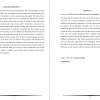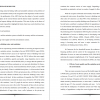Тема: WATER CRISIS IN AFRICA: CASE OF CAMEROON
Закажите новую по вашим требованиям
Представленный материал является образцом учебного исследования, примером структуры и содержания учебного исследования по заявленной теме. Размещён исключительно в информационных и ознакомительных целях.
Workspay.ru оказывает информационные услуги по сбору, обработке и структурированию материалов в соответствии с требованиями заказчика.
Размещение материала не означает публикацию произведения впервые и не предполагает передачу исключительных авторских прав третьим лицам.
Материал не предназначен для дословной сдачи в образовательные организации и требует самостоятельной переработки с соблюдением законодательства Российской Федерации об авторском праве и принципов академической добросовестности.
Авторские права на исходные материалы принадлежат их законным правообладателям. В случае возникновения вопросов, связанных с размещённым материалом, просим направить обращение через форму обратной связи.
📋 Содержание
ACKNOWLEDGEMENT ii
ABSTRACT iii
TABLE OF CONTENTS iv
LIST OF ABREVIATIONS vi
INTRODUCTION 1
RELEVANCE OF THE STUDY AND THESIS PROPOSAL 2
THE PROBLEM 4
HYPOTHESIS 6
OBJECTIVES 7
LITERATURE REVIEW 8
METHODOLOGY 13
PART I: THE CONTEXT AND THE IMPORTANCE OF THE WATER CRISIS IN AFRICA WITH CAMEROON AS A CAS 14
CHAPTER 1: THEORETICAL FRAMEWORK OF WATER CRISIS IN AFRICA 18
1. Definition of the water crisis and its challenges in Africa 18
2. Factors contributing to the water crisis in Cameroon 20
3. Conceptual framework for analyzing the water crisis 22
CHAPTER 2: ANALYSIS OF THE WATER SITUATION IN CAMEROON 26
1. Data on access to drinking water and sanitation in Cameroon 28
2. Main water-related challenges and problems in the country 31
3. Government policies and initiatives to manage the water crisis 34
PART II: DIAGNOSIS AND EVALUATION OF THE WATER CRISIS IN CAMEROON 39
CHAPTER 3: SOCIO-ECONOMIC AND ENVIRONMENTALIMPACTS OF THE WATER CRISIS 44
1. Consequences on public health and the living conditions of the population 45
2. Effects on the economic and social development of Cameroon 49
3. Impact on the environment and naturals resources 55
CHAPTER4: FACTORS INFLUENCING ACCESS TO DRINKINGWATER AND SANITATION IN CAMEROON 58
1. Socio-economics factors 58
2. Environmentals factors 59
3. Public polices and gouvernance 61
PART III: STRATEGIES AND SOLUTIONS TO OVERCOME THE WATER AND SANITATION CRISIS IN CAMEROON 64
1 Sustainable water management approaches (Government programs) 66
2 Local and international initiatives to improve access to water in Cameroon (Actions of
international organizations and NGOs) 68
3 Recommendations for a better management of the water resource (Good practices and innovations) 70
SWOT ANALYSIS 76
1. Strengths of the water and sanitation sector in Cameroon 76
2. Weaknesses of the water and sanitation sector in Cameroon 77
3. Opportunities to improve water and sanitation in Cameroon 78
4. Threats to the water and sanitation sector in Cameroon 80
5. Strategies for leveraging strengths and opportunities 81
6. Solutions to overcome weaknesses and threats 82
CONCLUSION AND RECOMMENDATIONS 85
CONCLUSION 87
BIBLIOGRAPHY 91
APPENDIX 93
📖 Введение
This thesis aims to raise a collective awareness of the vital importance of water for the sustainable development of Cameroon and to inspire concerted actions to guarantee equitable access to drinking water for all citizens. By working together to meet this common challenge, it is possible to transform the water crisis into an opportunity for progress and development for Cameroon and its population.
✅ Заключение
up-to-date and comprehensive data on water resources, infrastructure, and governance frameworks in African countries to inform evidence-based decision-making.
To address these limitations and enhance our understanding of sustainable water management practices in Africa, further research could focus on conducting comparative analyses across different African countries or regions to identify best practices and success factors. Impact assessments of existing water management interventions can provide insights into their effectiveness and inform future policy decisions. Additionally, research on climate change adaptation strategies and technological innovations in water management can help mitigate the impacts of climate change on water resources and improve water monitoring, treatment, and distribution in African countries. By addressing these limitations and pursuing further research in key areas, stakeholders can advance sustainable water management practices in Africa and contribute to water security, environmental sustainability, and inclusive development on the continent.





